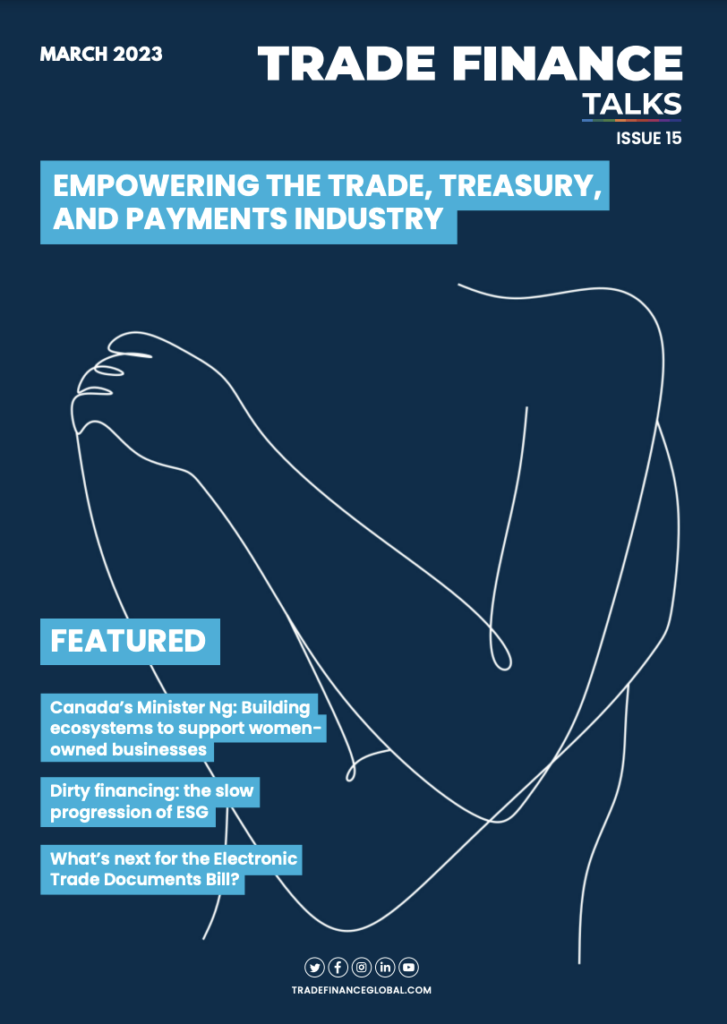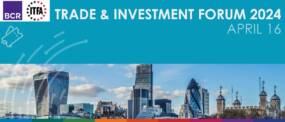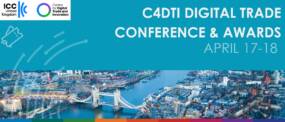Estimated reading time: 5 minutes
8 March 2023 marked Trade Finance Global’s (TFG) fourth consecutive celebration of International Women’s Day. This year, however, was different.
At TFG, we kicked off our largest ever campaign, championing 100 Women in Trade, Treasury & Payments (TTP), along with an inaugural London based event with 30 of the most influential women in their fields.
Unlike the men-to-women ratio at most TPP industry events, the dinner was the exact opposite. Over 30 women in the room, and only one man.
While this moment was a great visualisation of the progress that women have made in the workplace, it is also a reminder that we all have so much farther to go. A female-dominated TTP event should not be a one off event. It should be commonplace, across all industries, all regions, and all countries.
Lynette Thorstensen, chair of the board at Fairtrade International, gave a keynote speech at TFG’s Women in Trade, Treasury & Payments dinner, and reminded us that progress is happening, even if it seems unachievable in the moment.
“This is the story of Café Femenino in Peru: The Cafe Femenino story begins with indigenous women growing coffee in the Andes of Northern Peru…These women had an idea. An innovative and entrepreneurial idea. Indigenous women from 60 communities became involved in a Fairtrade coffee co-operative. They shared the stories of their difficult lives. They decided that together they could change their lives by selling their coffee separately from the men.”
It began with 8 women in 2004, now there are more than 700 women involved.
For women, not all challenges are equal either. Some challenges do not revolve around careers but economic empowerment and safety, as evident across the globe and even on our doorstep. Some of the TFG team spent an afternoon in March volunteering at Sebby’s Corner in Hertfordshire, packing essential kits for mostly single-mum families, living in poverty or temporary accommodation, women and their children who have fled domestic abuse, refugees, asylum seekers and victims of modern slavery and human trafficking.
1 in 3 residents in the county are income deprived, rising to 40% among children, and 1 in 4 adults are out of work, and with the current cost of living crisis, it’s getting worse. A sad reality – hearing from mums who have to water down their baby formulas, reuse nappies, and sacrificing their own meals for their children. The team made packs of clothing, nappies, formula, toiletries and baby equipment, which were collected by seven families the next week.
As we have seen over the past few years, progress is not linear. In almost every aspect of life, two steps forward are often accompanied by one step back. The current economic climate is not only impacting international trade and large corporate deals, it is making the day-to-day experience much harder. It’s a frustrating relationship, but it is the reality that we all have to deal with.
An industry example of this is the UK is well on its way to passing the Electronic Trade Documents Bill (ETDB), marking a monumental milestone for trade digitisation legislation. Governmental support will certainly increase the speed of digital adoption within the industry.
Two steps forward.
But, on 22 February, a court ruling declared block-chain-based platform Marco Polo Network insolvent, with more than €5.2 million of debt. Marco Polo Network was well respected throughout the industry, so their insolvency sent shockwaves through the community. The Marco Polo Network joins we.trade and Serai, and I’m sure, many more, within the challenging tradetech industry.
One step back.
The WTO reported that trade in February and March 2023 grew at a higher rate than previously expected. Supply chains have loosened, and energy prices fell significantly, helping avoid the worst-case scenario that many were fearing.
More and more international trade companies have adopted and implemented electronic practices, including electronic bills of lading (eBLs). The move to eBLs will save roughly $30-40 billion and 28,000 trees a year. A simple step will substantially further ESG efforts and reduce trade friction, greatly benefiting SMEs globally.
Two steps forward.
In the waning hours of Friday, 10 March, Silicon Valley Bank (SVB) shut its doors and was taken over by United States regulators. The SVB collapse was the second-largest bank to ever fail in the US, and directly led to the collapse of Signature Bank. The March banking collapse forced the US FDIC to rapidly change their deposit insurance policy in order to prevent a large-scale bank run.
We are only a few weeks removed from the collapse, but have already seen the dominoes impact the global macroeconomic landscape. Following a string of missteps, including Archegos, and Greensill scandals, and the 167-year-old Swiss banking giant Credit Suisse was taken over on 19 March by rival bank UBS.
The Swiss Federal Department of Finance, SNB and the Swiss Financial Market Supervisory Authority orchestrated a rescue deal for UBS’ purchase of the beleaguered bank Credit Suisse in an attempt to calm the jittery markets and restore confidence.
One step back.
The reality of the world, in the past, present and future, is that there will be significant barriers to progress. Nothing comes easy, and sometimes, it can be hard to see the light at the end of the tunnel.
It is easy to be occupied with the bad news and the setbacks, which there are plenty of. But oftentimes, in the face of macroeconomic and geopolitical uncertainty, there are real-life stories that are subtly taking two steps forward and ignoring the one step back.
Deepesh Patel, editorial director, TFG
Brian Canup, assistant editor & research assistant, TFG
 Australia
Australia Hong Kong
Hong Kong Japan
Japan Singapore
Singapore United Arab Emirates
United Arab Emirates United States
United States France
France Germany
Germany Ireland
Ireland Netherlands
Netherlands United Kingdom
United Kingdom






























Comments are closed.